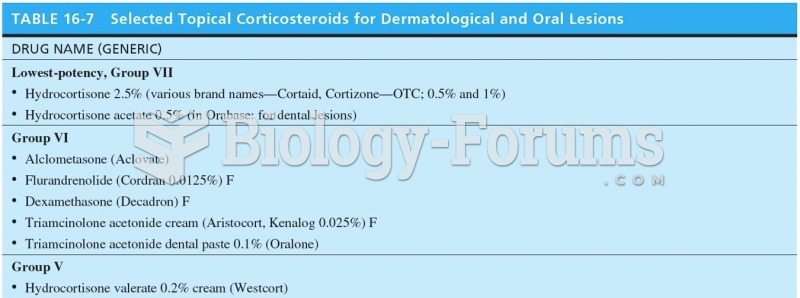|
|
|
The liver is the only organ that has the ability to regenerate itself after certain types of damage. As much as 25% of the liver can be removed, and it will still regenerate back to its original shape and size. However, the liver cannot regenerate after severe damage caused by alcohol.
After a vasectomy, it takes about 12 ejaculations to clear out sperm that were already beyond the blocked area.
On average, someone in the United States has a stroke about every 40 seconds. This is about 795,000 people per year.
Elderly adults are at greatest risk of stroke and myocardial infarction and have the most to gain from prophylaxis. Patients ages 60 to 80 years with blood pressures above 160/90 mm Hg should benefit from antihypertensive treatment.
Thyroid conditions cause a higher risk of fibromyalgia and chronic fatigue syndrome.







